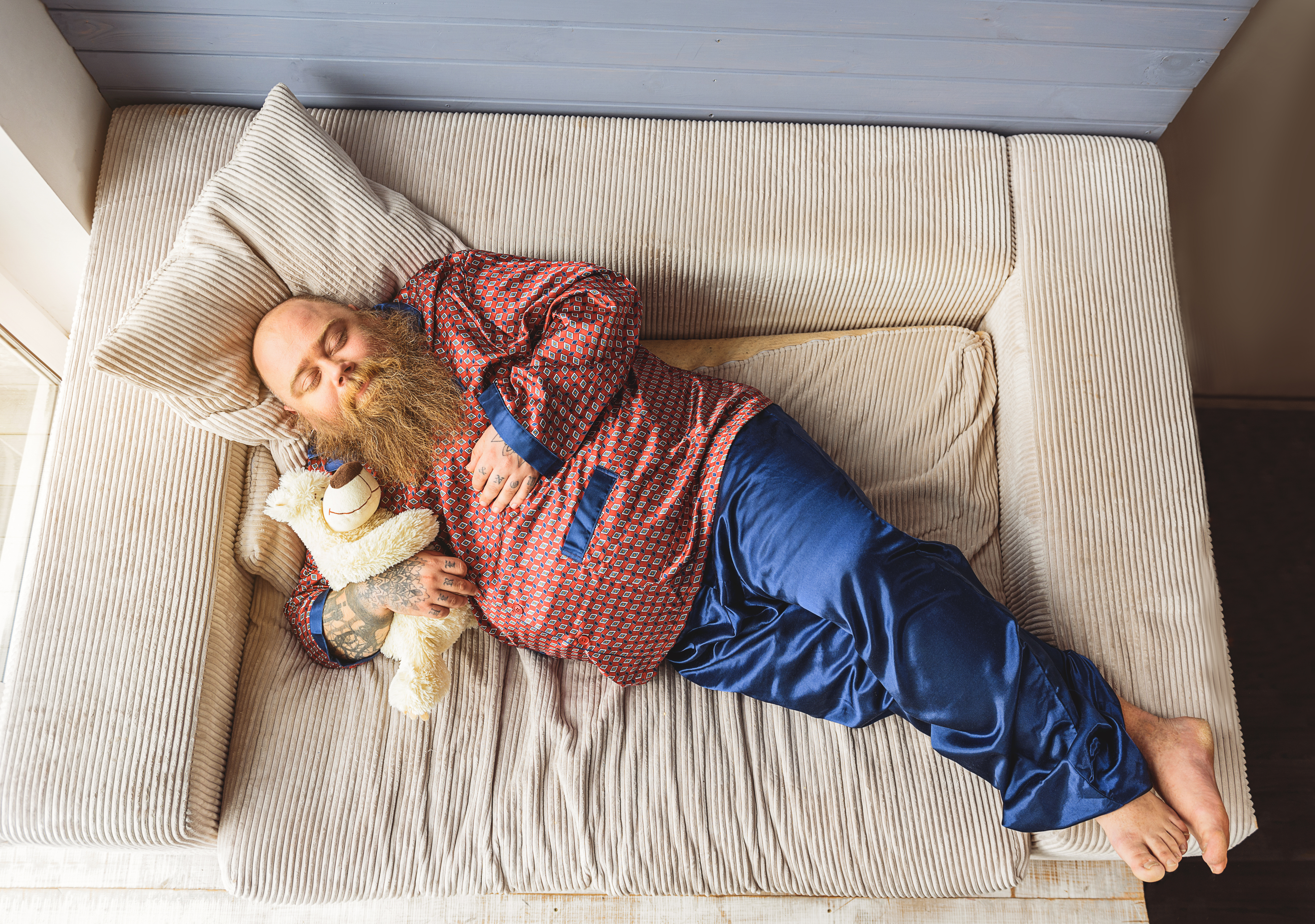
Nothing is more frustrating than snoring. Around twenty percent of people snore regularly. Whether you or your partner is the one that’s snoring it disrupts sleep. Disrupted sleep makes for grumpy people. Sleep is vital for your overall health, so here are seven ways to stop snoring.

7 Ways to Stop Snoring
1. Keep Your Mouth Closed
Humans are made, so we breathe through our noses, and there’s a specific reason for that. Sleeping with your mouth open allows air to hit the soft tissue at the back of your throat, which makes it vibrate and cause the snoring sound. Mouth breathing is probably the most common reason for snoring.
Try using a chin strap that loops under the chin and over your head, or you can try a mouth guard. Whatever is most comfortable for you.
2. Your Nose Needs to Be Open
Having your nasal passages open reduces the chances of you mouth-breathing or snoring. Try using nasal sprays and antihistamines to clear congestion caused by allergies and other parts of life.
Alcohol and smoking also can stuff up your nose, while quitting is the best option. We understand that it’s easier said than done. So, try not to smoke in the four hours before you go to sleep and limit your alcohol intake to two days a week.
Old injuries to your nose could cause your nasal passage to be closed, like a deviated nasal septum. Press hard on one side of the nose and breathe in with your mouth shut. If the other side of your nose collapses inwards and air can’t get through, then you have an obstruction.
You can use nasal strips or dilators that sit inside the blocked nostril to open things up. Septoplasty, aka nose job, can also help.
3. Losing Weight
Having a bigger neck makes you snore because it compresses your airway. Men tend to store excess fat around the neck more than women, therefore tend to snore more. Losing weight will help stop snoring.
4. Look at Your Jaw
A receding jaw, also known as retrognathia, can cause snoring because the tongue is more likely to go back and block the airway when you sleep. To see if you have this, bite together on your back teeth, if your lower teeth are really behind the upper ones, then you have may a receding jaw.
Different devices can help with this issue.
5. Sleep on Your Side
You’re less likely to snore laying on your side versus your back. You can get specific pillows that will prop you up on your side.
6. See Your Doctor
Obstructive sleep apnoea (OSA) is when your throat closes, and you stop breathing for ten seconds or more. Oxygen levels in your blood fall and your brain restarts, usually with a jolt, gasp, or grunt. OSA is horrible for your health. It’s connected to daytime sleepiness that leads to accidents, high blood pressure, increased risk of stroke, diabetes, and depression.
7. Use Your CPAP
If you have OSA, you need a continuous positive airway pressure (CPAP) machine. It’s a small pump that gives you a constant supply of compressed air into your nose and mouth through a mask to stop your throat from closing.
Read more here.

